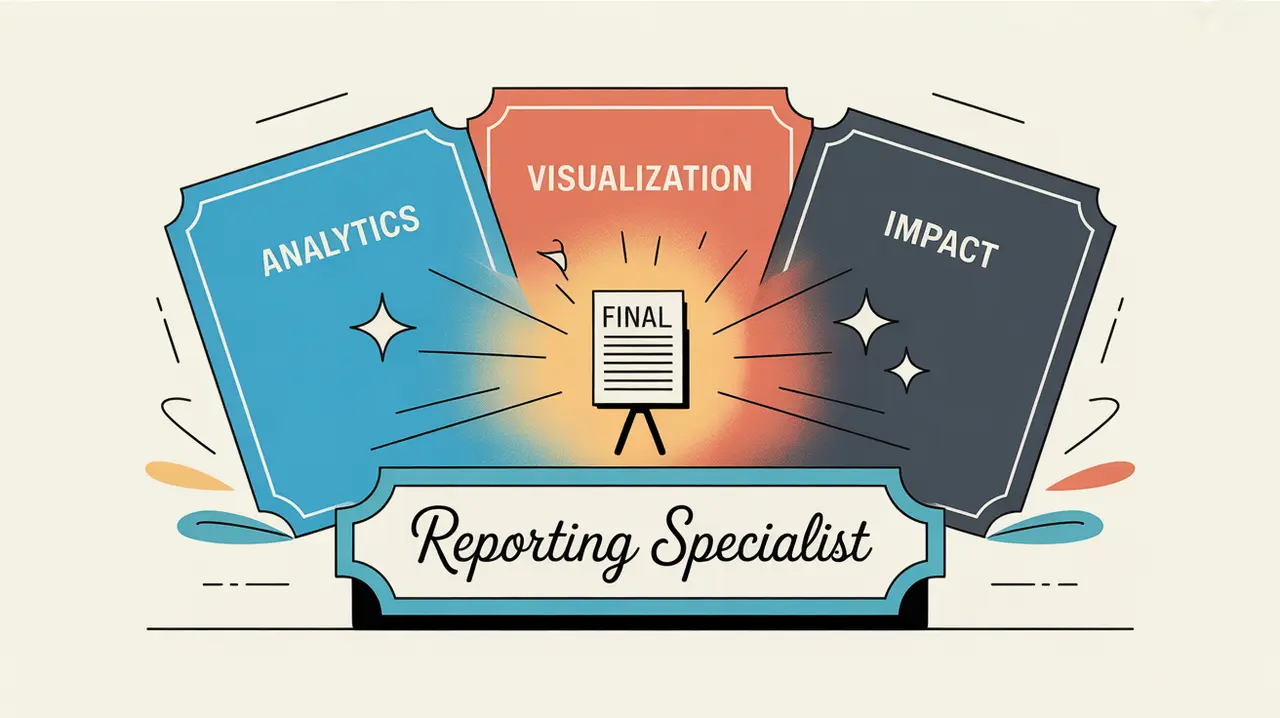What Does the Reporting Specialist Role Involve?
A Reporting Specialist is responsible for leading the design, production, and refinement of high-quality reports that communicate programmatic, financial, and operational performance to donors, partners, leadership, and regulatory bodies. They provide advanced analytical and writing expertise, ensuring that complex data and program information are translated into clear, compelling, and compliant reports. Their work often involves managing reporting workflows, improving systems, and advising teams on best practices for data collection and presentation.
In nonprofits and social enterprises, Reporting Specialists play a crucial role in strengthening accountability and positioning the organization as a credible, transparent, and results-driven partner.
At What Level does this Role Operate?
Mid to Senior Level: Reporting Specialists typically operate with significant responsibility, often reporting to a Reporting Manager, MEL Lead, or Program Director. They lead reporting processes for major grants, portfolios, or institutional donors and may train or supervise reporting officers and assistants. They also play a key role in shaping reporting strategies and improving organizational reporting systems.
Relative Employability: Reporting Specialist roles are in steady demand across NGOs, nonprofits, international development agencies, and social enterprises, particularly those managing multi-donor portfolios or complex reporting requirements. Their expertise in data interpretation, narrative development, and compliance makes them highly valuable.
Relative Pay Scale: Reporting Specialists usually occupy the upper mid pay band, sitting above officer roles and often alongside or just below managerial positions. Their compensation reflects their analytical depth, strategic communication responsibilities, and leadership in reporting processes.
What are the Key Responsibilities and Activities?
- Lead the drafting and finalization of donor, partner, and internal reports for major grants or programs
- Analyze and synthesize complex data from MEL, finance, and program teams to produce accurate and compelling narratives
- Ensure that reports meet donor requirements, formatting standards, and compliance guidelines
- Coordinate and manage reporting workflows across multiple teams to ensure timely delivery
- Develop and refine reporting templates, tools, and processes to improve quality and efficiency
- Provide quality assurance and editing support for reports prepared by other team members
- Advise program teams on data presentation and narrative framing to strengthen reporting outputs
- Liaise with donors and partners to clarify reporting expectations and provide follow-up information as needed
- Contribute to organizational learning by identifying trends, challenges, and insights from reporting data
What Core Competencies and Qualifications are Needed?
Required Qualifications and Experience
The following reflect common qualifications and experience expected for this role, while recognizing that pathways may vary by context, organization, and region.
- Relevant academic background in social sciences, international development, communications, or related fields
- Several years of experience in reporting, grants management, MEL, or program coordination, including complex donor reporting
- Proven ability to synthesize large volumes of information into clear, concise, and compelling narratives
- Familiarity with donor compliance requirements, reporting templates, and performance frameworks
- Experience coordinating reporting across multiple teams or departments
Key Competencies
- Exceptional writing, editing, and synthesis skills
- Analytical thinking and the ability to interpret and present data effectively
- Strong project management and coordination abilities
- Attention to detail and accuracy under tight deadlines
- Ability to communicate clearly and diplomatically with internal and external stakeholders
- Leadership and mentoring skills to support reporting teams and build organizational capacity
How are AI and Automation Shaping this Role?
An AI-native Reporting Specialist can use AI tools to automate the aggregation and analysis of data from multiple systems, generate draft narrative sections from structured data, and check reports against donor guidelines for compliance. AI can identify trends, flag gaps, and optimize data visualization for clarity and impact. Workflow automation can streamline coordination, freeing specialists to focus on high-level analysis, narrative framing, and quality assurance.
What Career Pathways and Transferable Skills are Associated with this Role?
Reporting Specialists can progress to roles such as Reporting Manager, MEL Manager, Program Manager, or Grants Manager. Their advanced skills in synthesis, compliance, and strategic communication are transferable to roles in program leadership, donor relations, knowledge management, and organizational learning. Over time, they may take on responsibility for overseeing large reporting teams, shaping institutional reporting strategies, or contributing to evidence-based policy and advocacy efforts.







